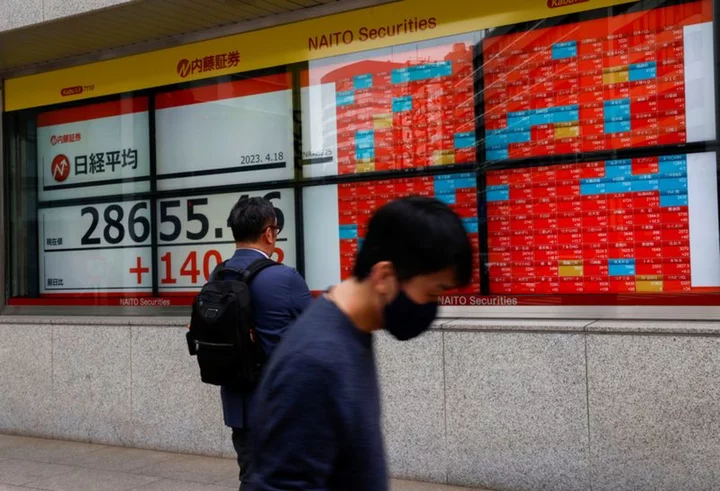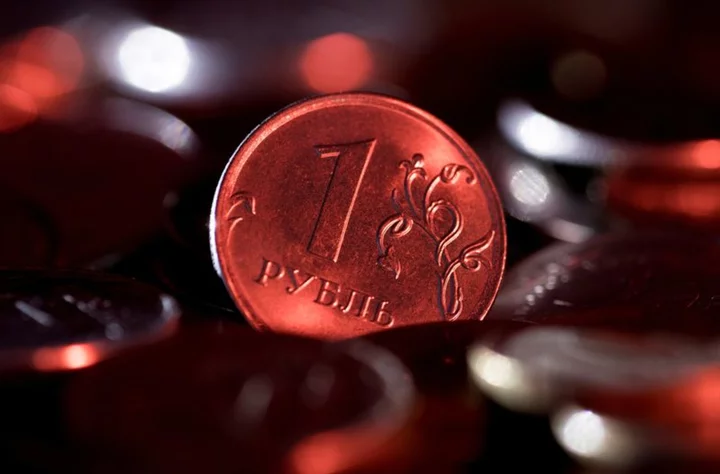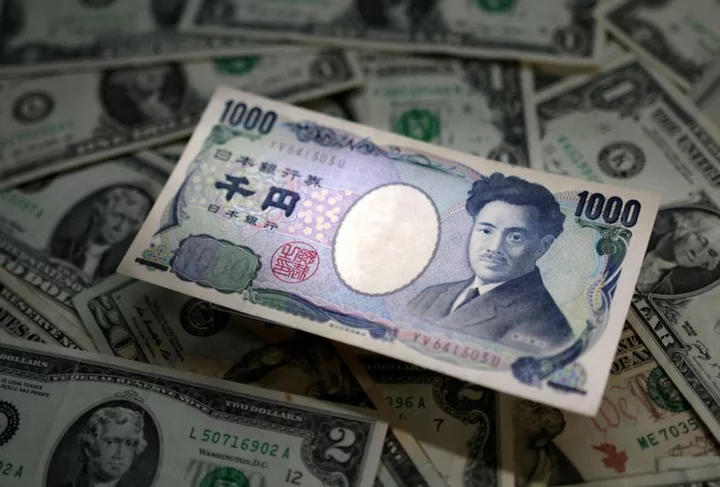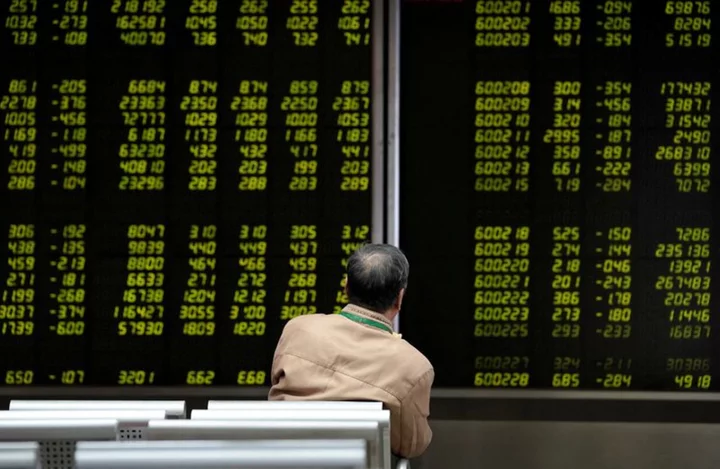By Jamie McGeever
A look at the day ahead in Asian markets from Jamie McGeever, financial markets columnist.
Asian markets on Monday kick off what looks like a pretty light week for regional economic, policy and corporate drivers, with all eyes on how investors react to the extraordinary events in Russia over the weekend.
It is unclear what the immediate impact of Russian mercenaries' advance on Moscow, retreat and apparent deal with President Vladimir Putin will be on risk appetite and demand for traditional 'safe haven' assets like gold, Treasuries, the Japanese yen or the U.S. dollar.
These assets would likely have attracted strong investor demand first thing on Monday morning had the Wagner group's march on Moscow continued. The apparent truce, however, makes that less certain, although the situation remains fluid and huge uncertainty surrounding Putin's grip on power remains.
U.S. Secretary of State Antony Blinken suggested the turmoil in Russia might not be over and could take months to play out, while China's foreign ministry said on Sunday that Beijing supports Russia in maintaining its national stability.
U.S.-Sino relations were already rock bottom so differences over the crisis in Russia will come as no surprise, but could serve as a reminder of the geopolitical risks that hang over global markets.
Investors may be inclined to hunker down for the time being given the broader 'risk off' sentiment that descended on markets on Friday.
Stock markets around the world finally succumbed to a heavy bout of profit-taking, with worries over inflation - especially core price pressure - and 'higher for longer' interest rates triggering the biggest weekly selloff in many major indices since the U.S. banking shock in March.
The S&P 500, Nasdaq, MSCI World Index, China's major indices and Japan's Nikkei 225 index all posted their biggest losses since March last week.
Having hit a series of fresh 33-year highs, the Nikkei last week broke a 10-week winning streak, its best run since 2012/2013. The MSCI Asia ex-Japan index, a broad measure of Asian stocks, slumped 4.2%, its worst week since September.
The U.S. yield curve inversion is now within a few basis points of the multi-decade lows reached in March, and the dollar regained a foothold last week - all else equal, neither development is particularly positive for emerging markets.
The yen will be worth watching - it hit a seven-month low around 144.00 per dollar on Friday, so could be poised for a sizeable rebound if there is a broad safe-haven flow, even though U.S.-Japanese rate differentials are stacked against it.
The Asian economic and policy calendar this week is light, with most of the potential for market-moving news coming later in the week - Japanese and Australian retail sales on Thursday, and Japanese unemployment and Chinese purchasing managers index data on Friday.
Here are key developments that could provide more direction to markets on Monday:
- Singapore industrial production (May)
- Taiwan industrial production
- Germany Ifo index (June)
(By Jamie McGeever; Editing by Diane Craft)









